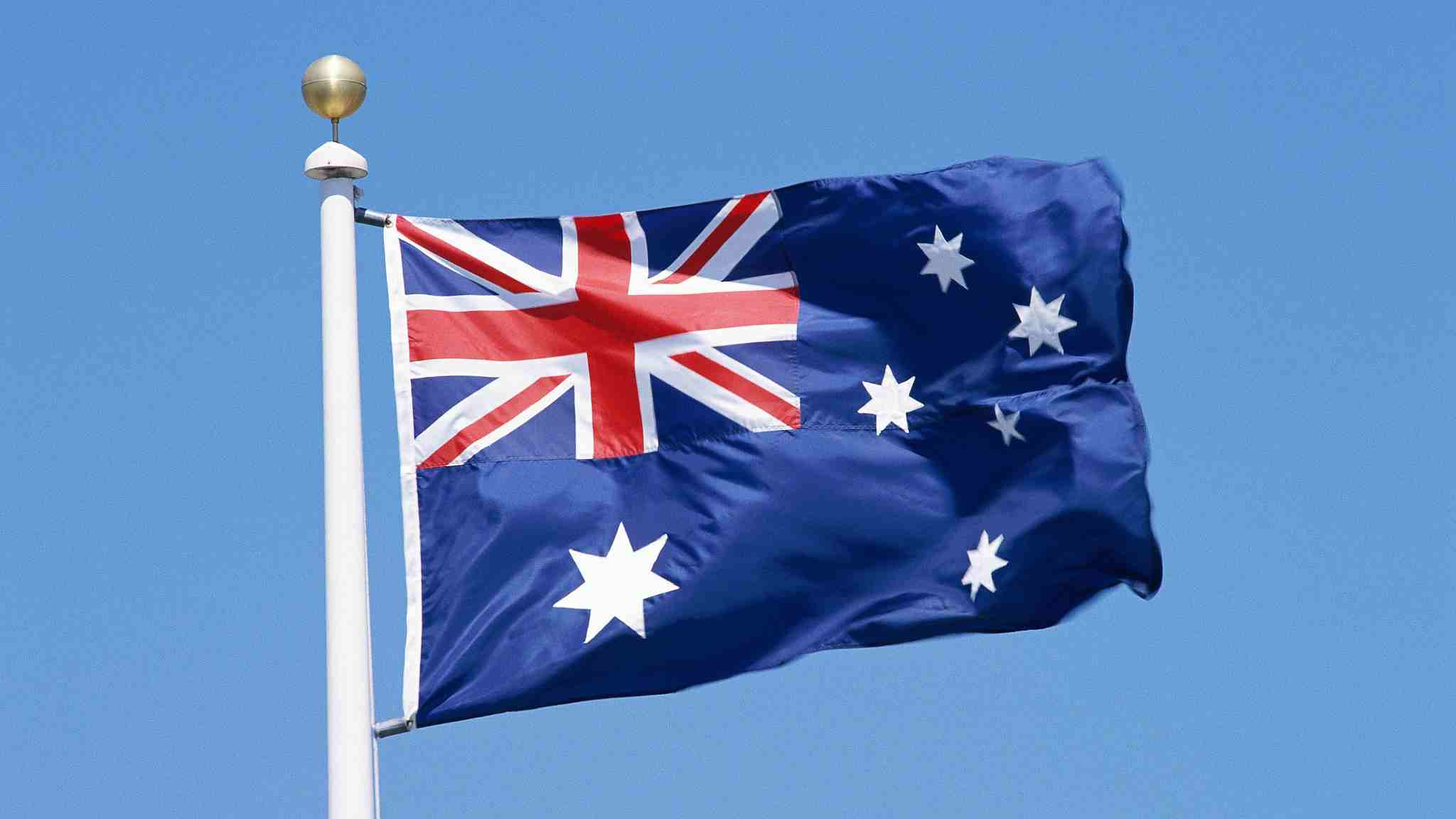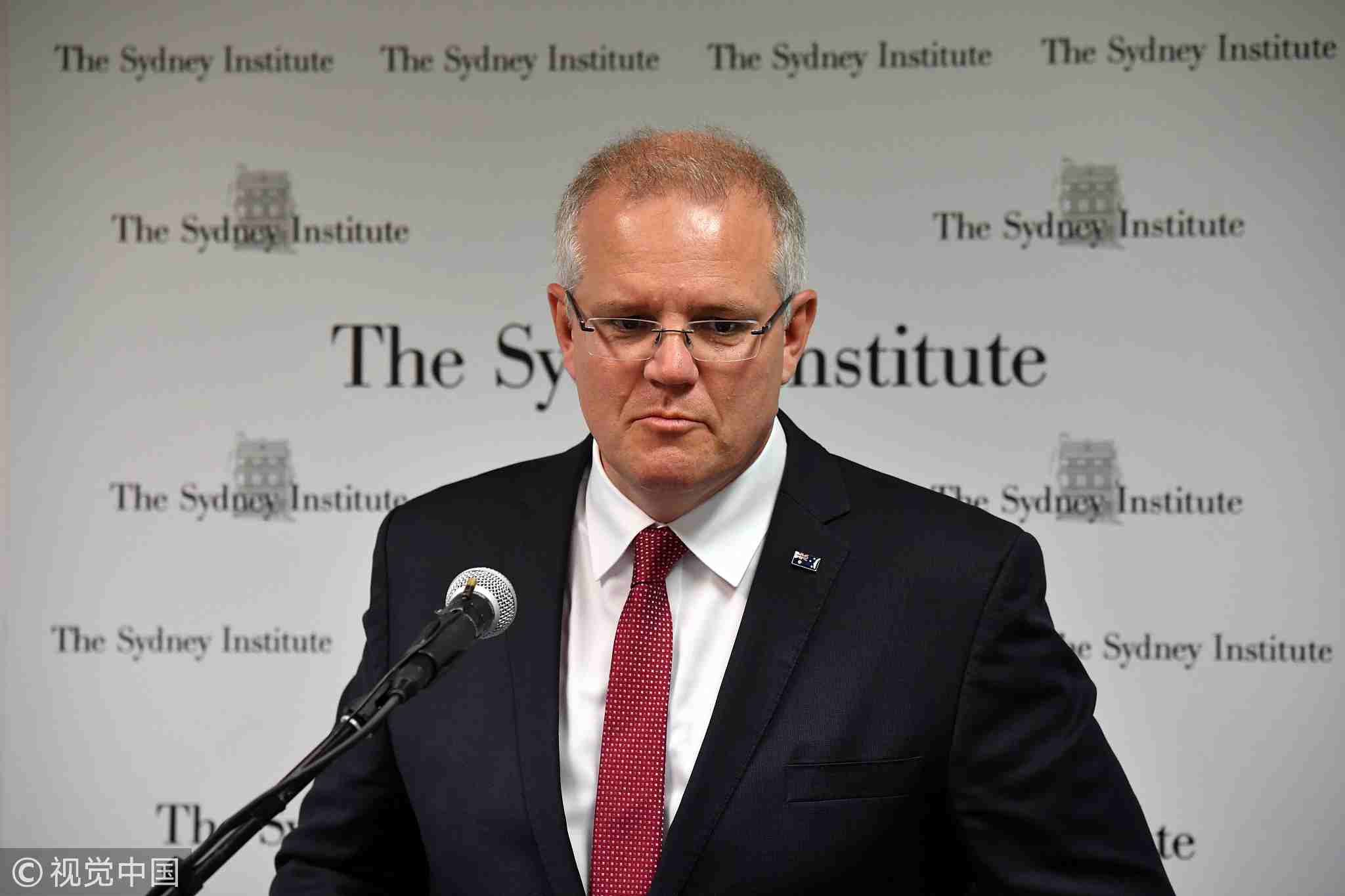
Opinions
22:26, 15-Dec-2018
Opinion: Australia’s decision to recognize Jerusalem is risky
Updated
22:15, 18-Dec-2018
Wang Jin

Editor's note: Wang Jin is a research fellow at the Charhar Institute and a research fellow of Northwest University of China. The article reflects the author's opinion, and not necessarily the views of CGTN.
On Saturday, Australian Prime Minister Scott Morrison announced that the government has decided to recognize West Jerusalem as the capital of Israel, but will not move its embassy in Israel from Tel Aviv to Jerusalem.
Morrison's decision of recognizing West Jerusalem as the capital of Israel shocked many Aussies, and his decision makes Australia one of the few countries that officially recognize West Jerusalem as the capital of Israel.
Meanwhile, the Australian government will recognize East Jerusalem as the capital of Palestine only when a two-state solution is reached by Israel and Palestine, and will respect the final settlement achieved between Israel and Palestine.
The U.S., Paraguay and Guatemala are the only three countries that announced their embassies will move from Tel Aviv to Jerusalem, while Paraguay's new leadership reversed the decision after the government change. Morrison's intentions with the Jerusalem issue was seen as early as this October.

Australian Prime Minister Scott Morrison announces that Australia will recognize West Jerusalem as the capital of Israel during a speech at the Australian Institute in Sydney, NSW, Australia, December 15, 2018. /VCG Photo
Australian Prime Minister Scott Morrison announces that Australia will recognize West Jerusalem as the capital of Israel during a speech at the Australian Institute in Sydney, NSW, Australia, December 15, 2018. /VCG Photo
Morrison's decision could be understood as his intention to attract Jewish voters at home. For example, in his October announcement of transferring the embassy to Jerusalem, his close political ally Dave Sharma, the Australian former ambassador to Israel, was on his campaign in a by-election in Sydney.
Morrison's latest announcement of moving the embassy to Jerusalem might help him alleviate growing pressures at home. Morrison faces an election next year and it is necessary for him to earn both support from Jews at home and support from the White House.
Morrison's decision over Jerusalem came after his consultation with his Middle East experts and politicians, and his move over the status of Jerusalem seems very prudent and precautious.
This can be seen by Morrison's decision to recognize West Jerusalem, not the whole of Jerusalem, as the capital of Israel, given that the status of East Jerusalem that covers the holy old Jerusalem city is the focus of Israel-Palestine conflict.
Furthermore, Morrison also announced the delay of transferring the Australian embassy from Tel Aviv to Jerusalem, He also decided to establish a defense and trade office in West Jerusalem.
Given the fact that West Jerusalem has been occupied by Israel since 1948 and the major Israeli government establishments are located in West Jerusalem, Morrison might believe that his move over the status of Jerusalem, especially the West Jerusalem, will not provoke anger among the Arab countries and the Muslim community.
The status of Jerusalem has become one of the most sensitive issues in modern history. The status of Jerusalem not only relates to the bilateral ties between Israel and Palestine, but also relates to relations between Israel and the Arab world. In the meantime, as the holy city for Jewish, Christians and Muslims, any country's attitude towards the status of Jerusalem could largely determine its ties with not only Arab countries, but also different Muslim states.

Australian Prime Minister Scott Morrison (L) with Australian Minister for Foreign Affairs Marise Payne at the Australian Institute in Sydney, NSW, Australia, December 15, 2018. /VCG Photo
Australian Prime Minister Scott Morrison (L) with Australian Minister for Foreign Affairs Marise Payne at the Australian Institute in Sydney, NSW, Australia, December 15, 2018. /VCG Photo
After Israel captured Jerusalem from Jordan in 1967, some Latin American states, such as Guatemala and Peru opened their embassies to Israel in Jerusalem in the 1970s, and the boycott and diplomatic pressure from the Arab world forced these countries to withdraw their embassies from Jerusalem to Tel Aviv in early 1980s.
At the end of last year when U.S. president Donald Trump announced his decision to recognize Jerusalem as the capital of Israel and to transfer its U.S. embassy from Tel Aviv to Jerusalem, U.S. has been widely criticized by a range of Arab and Muslim regions.
For many Muslims, the status of Jerusalem is a zero-sum issue, and even one country's self-righteous “divide and role” tactic to recognize West Jerusalem as the capital of Israel and to lay aside or recognize East Jerusalem as the capital of Palestine might not be accepted by many Muslim and Arab regions.
For many Arab and Muslim regions, Jerusalem should be united and composed by both East and West Jerusalem, and even the status of West Jerusalem should be only determined by a peace negotiation settlement between Israel and Palestine.
Therefore, Morrison's decision over Jerusalem might be risky for Australia's foreign ties with the Arab and Muslim world, and diplomatic pressure from other countries such as Turkey and Palestine, might force Morrison and his future successors to reconsider the decision.
(If you want to contribute and have specific expertise, please contact us at opinions@cgtn.com.)

SITEMAP
Copyright © 2018 CGTN. Beijing ICP prepared NO.16065310-3
Copyright © 2018 CGTN. Beijing ICP prepared NO.16065310-3